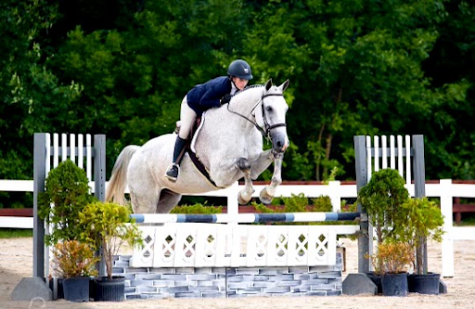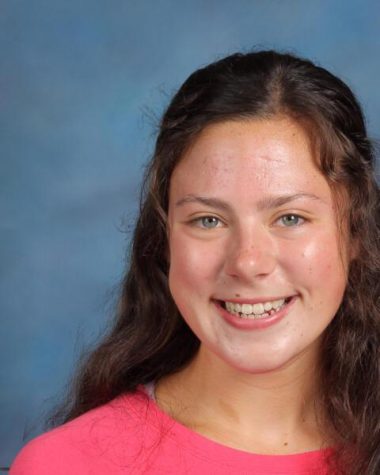How hard do athletes work behind the scenes?

September 23, 2021
High school sports are a huge part of student athletes’ high school experiences. Student-athletes are practicing five days, not including games, during the week, as well as tournaments on the weekends.
But being an elite athlete means a lot more than going to only team practices. So, what really goes into student athletes’ competing in these sports at the highest level?
For cross country senior Gaby Brown, the captain of the Girls Cross Country team, the cross country season is nothing short of a rigorous commitment.
Practices are about two hours a day, and if you are a top 20 runner like Brown, an additional long run on Saturday mornings plus one to two school meets a week.

This all adds up to running an average of 30 miles a week during the regular season. Brown says getting ready for the regional and state competitions, she runs almost 50 miles a week at the peak of the season.
“However there is a lot more to Cross Country than running, we do strength work, hurdle stretching, yoga, and a ton of rolling out,” Brown said.
Cross Country goes far beyond regular team practices. She has been running cross country for the high school team for the last four years. In addition, besides running Brown trains at home by stretching and filling her body with healthy foods.
Running in the off-season helps to acclimate faster to the rigors of the actual season, “If you want to get better and do the work, summer workouts are the way to go!” Brown said.
All of her work has paid off with her biggest accomplishment being captain for a team where she, “absolutely loves the community of girls,” Brown says. She is also very proud of her personal record of 18:57 which she reached her sophomore year.
 Senior Hannah Ziperstien has been playing hockey since she was 12 years old, and has been playing hockey for the Varsity Girls Hockey Team for the last four years, while also playing travel hockey.
Senior Hannah Ziperstien has been playing hockey since she was 12 years old, and has been playing hockey for the Varsity Girls Hockey Team for the last four years, while also playing travel hockey.
She is a dedicated member of the Scout team which entails five hours of hockey practice a week.
But what makes her an elite athlete on her team is the hard work she puts in in addition to the regular team practices during the season.
“If you add up all the hours I’ve spent practicing outside of scheduled hockey practice it would total more than the number of hours I spend during the regular Scout practices,” Ziperstien said. “The additional training outside the regular practices dramatically improves my game.”

Ziperstien outside of regular team practices spends ten hours a week running, lifting weights, and stickhandling and shooting at her house. Every winter she and her dad build a mini ice rink in their backyard for training.
“Separating the bad players on the team from the good ones is their additional work done outside of regular practices,” she said. Once a week Ziperstien wakes up at 5 a.m. before school and heads to the ice rink for private training with an instructor from 6 a.m. to 7 a.m. before her
school day. She attributes her work ethic to “becoming the player she is today.”
Tess Clark, another member of the Varsity Girls Hockey team, has been playing since she was nine years old. Over the summer she takes her training to another level. Clark practices hockey every day, not getting home until 11:30 p.m. every night.
In addition, she also travels to Milwaukee four times a week for her passion. The driving time round trip to Milwaukee is over two hours a session. All this work does not go unrewarded with her winning Illinois State Cup and going to Nationals last year.
Clark’s motto is: “practice doesn’t make perfect but it makes you better.”
 Senior Delaney Galvin started competitive horseback riding when she was nine years old and has been training ever since.
Senior Delaney Galvin started competitive horseback riding when she was nine years old and has been training ever since.
Galvin trains on her horse three-plus hours a week, not including the average of 10 hours per week she spends at the barn preparing and training to ride. At weekend competitions she can spend anywhere from five to ten hours at the barn competing, and preparing to compete.
“I don’t have any regrets with how much time I dedicate to training, absolutely not! I am first place in my division, meaning I have the most points of all my competitors. Therefore, all of my hard work has paid off,” Galvin said. “Everything I have done has helped me get to this point.”
For Galvin, riding goes a lot farther than high school aspirations because she plans on riding through college and less competitively after that. It’s a way of life.






